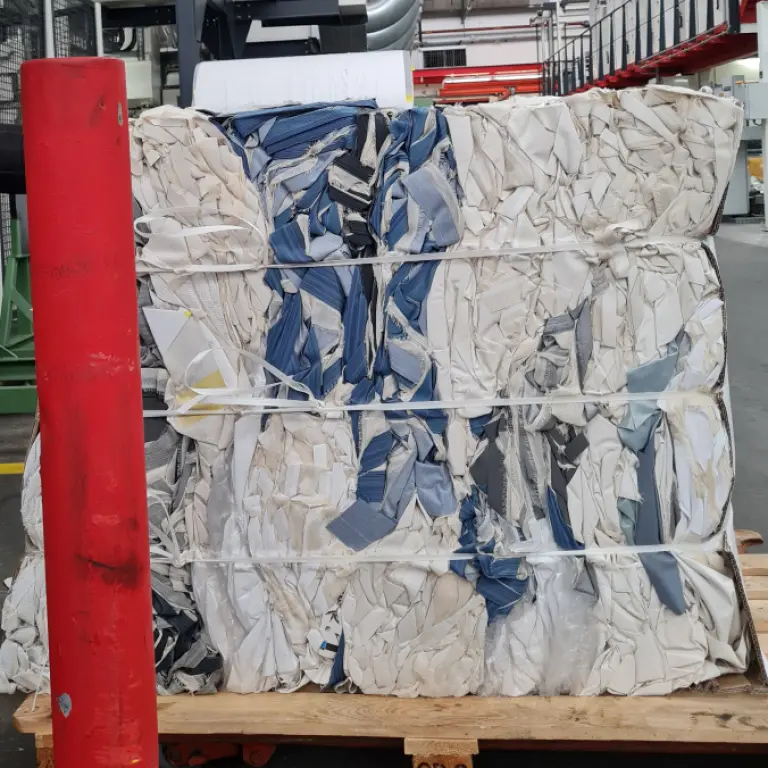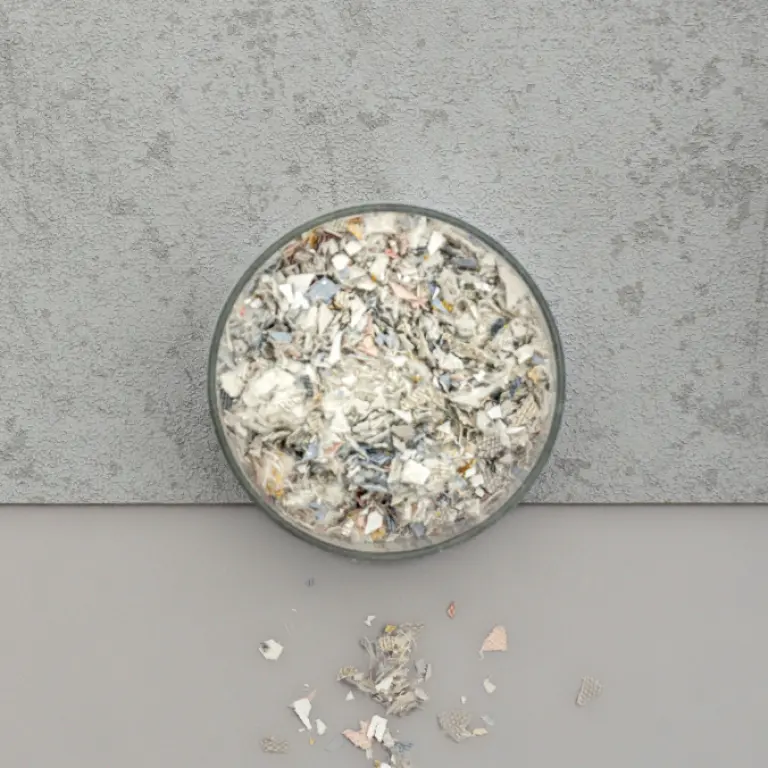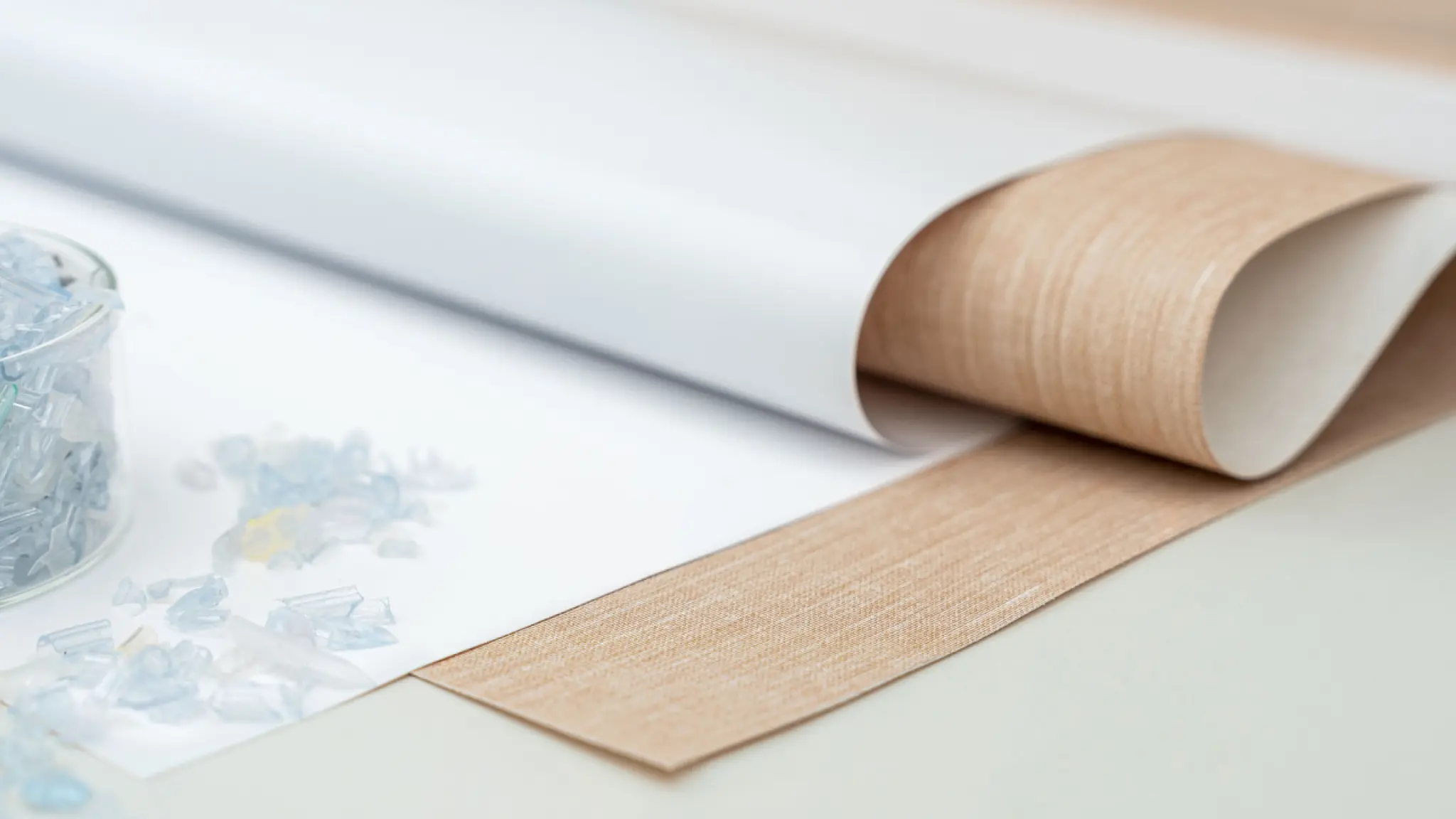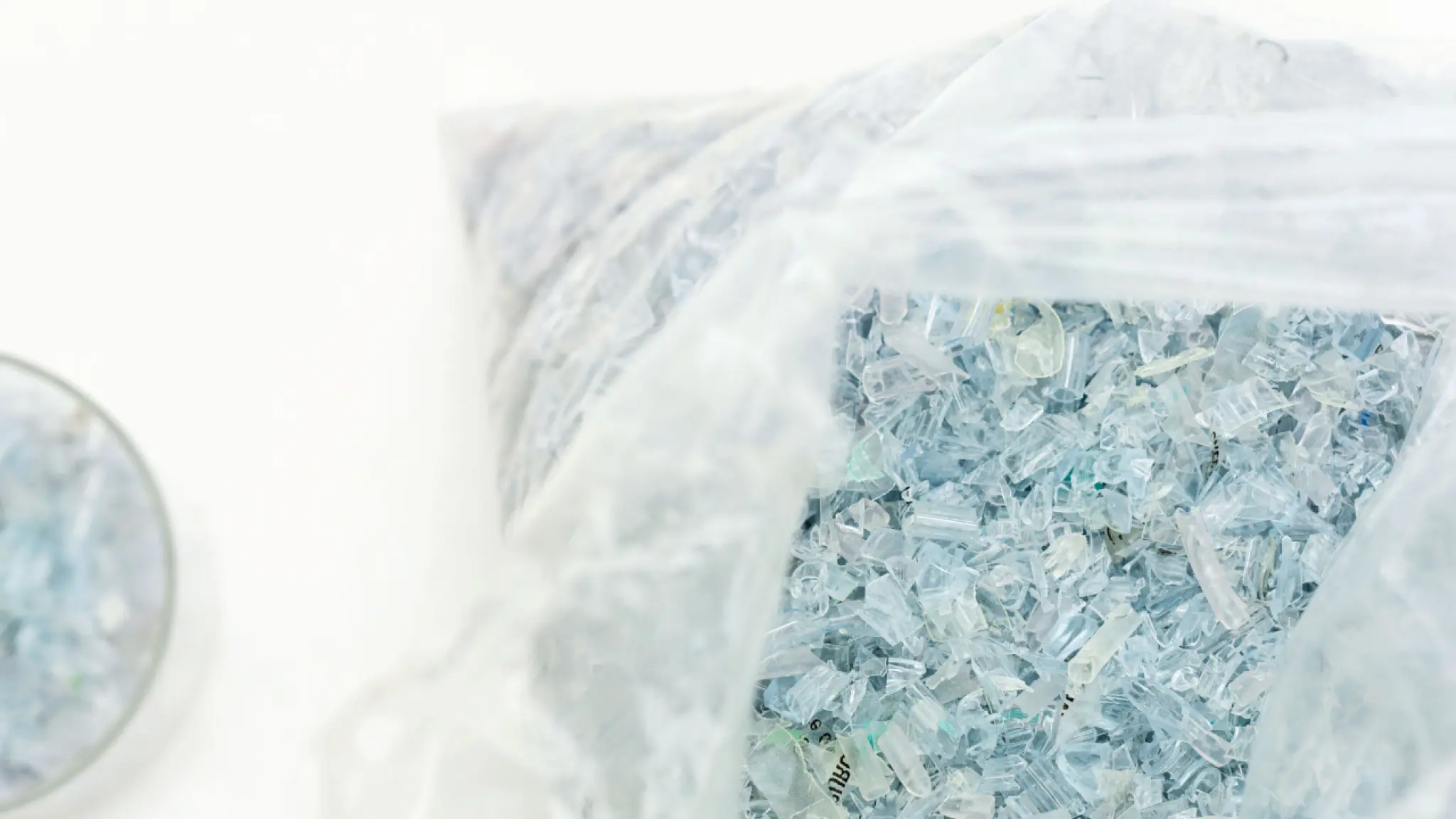
Circular thinking
Vescom embraces circularity as a core method to all that we innovate and produce.
Rethinking reuse, reduction and recycling
At Vescom, our circularity initiatives are focused on reuse, reduction and recycling. Our innovative and material-specific waste strategies reflect current possibilities and will continue to evolve with new developments; keeping Vescom at the forefront of sustainable design.
Making waste work
In the production of our vinyl wallcoverings, we have proactively converted production waste into new products, showcasing our commitment to sustainability. We also explore partnerships beyond our industry to enhance waste management.
Make waste work

Recycled vinyl wallcovering
We introduced the first vinyl wallcovering with recycled content from our own production waste. Waste is collected, sorted, shredded, melted and transformed into a base layer film containing 40% recycled material. This is our first step towards a circular system reintegrating our own production waste from our wallcovering production. Our goal is to continuously increase the proportion of recycled content, post-industrial and post-consumer, in our products.
Currently, 25% of the total production waste, from the vinyl wallcovering production, gets recycled.

Recycled textiles

Turning medical waste into a solution. We are collaborating with VinylPlus on a pilot project to transform medical waste from Belgian hospitals into vinyl wallcovering for the healthcare sector, demonstrating our efforts to address waste on a broader scale.
Using only what we need
At Vescom, we employ a lean management system that optimises resource use and continuously improves efficiency in reducing waste during every stage of our processes. By using only what is necessary, we minimise material consumption and repurpose waste wherever possible. This ongoing pursuit of circularity ensures that we not only reduce our environmental impact but also consistently refine our methods to be more efficient and sustainable.
Our German weaving mill is recycling and repurposing production waste, where yarn scraps
are converted into non-wovens for automotive use and other applications, while plastic cones
are shredded for automotive parts. Wood waste becomes chipboard or fuel pellets, and paper waste is processed into new paper and cardboard.
Approximately 75-80% of general waste is recycled or down-cycled.

.jpg/e9d1895b31a92578d3bb96f837c46dbb/vescom_olefin_dsc04429_email-1-(1).webp)


